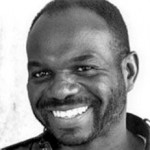Actor Anthony Azizi talks to POZ about playing an HIV positive character on ABC’s primetime hit Commander in Chief (Tuesdays at 9 p.m. EST) and gives us some inside dish on working with Geena Davis.
When the show began, did you know your character would be gay or HIV positive?
No. But I was excited—every artist wants to stand for something. I’ve heard Angelina Jolie say that she felt empty when she woke up every morning, because she felt she had no focus—it was all about “What dress am I wearing?” It wasn’t until she went to Cambodia and focused her life to serving humanity that she felt worthy of anything. And I understand that now. My family is Middle Eastern, and that culture is very nervous about HIV, because to them it means “gay” and gay is a real hot button. I’m from Iran, raised in New York and Philadelphia, and being from that heritage, I understand the stigma that’s attached to HIV. But in order to accept someone with HIV, you have to accept them for being human. We’re all brothers and sisters—we’re all truly connected—and we have to care.
Will you remain for the entire season?
Executive producer Steven Bochco has basically taken over, and he’s told me that “yes, we have plans for you.” I don’t know what those plans are. But I truly believe that if the community rallies around this character, that it will stand for something very significant, because it’s a TV first: a guy who’s gay, ethnic and HIV positive in the White House.
It’s an important first.
Yes, and I’m not saying that to champion my cause. I’m saying it because I must champion the cause. And I can still do that even though I’m not gay or positive in real life. I tell all my friends: It’s not black people that have to lead the civil rights movement. The white world is oppressing their rights, so they should lead the change. It’s the same with the feminist movement. Gloria Steinem can yell and scream, but if the man doesn’t change the way he views the world, it doesn’t make a difference. And it’s the same with HIV. I think it’s even more powerful when you’re negative like I am, because if you really care, you start understanding, and then you lead as someone who is part of the world that needs to make the adjustment.
Has anyone close to you had HIV?
A girlfriend’s first cousin. I was with her for six or seven years, so he was basically a family member. His name was Frank, and he went into full-blown AIDS and passed. I don’t want to downplay other people’s illness because everyone has challenges, but AIDS from my vantage point is maybe the most devastating. Because of what happens to the body and the weakness and how long you stick around. As people linger, they change physically and must find the strength to get up every day and fight. And Frank fought it. He died in 1996 or 1997. I’ve been involved since with Elisabeth Glaser Foundation, Pediatric AIDS, AIDS Walks, donating as much money and time as I can to bring awareness.
Is your wife involved, too?
Well, her mother’s from Zimbabwe, which has one of the highest HIV rates in all African countries. The nation is also very, very poor, so it’s been extremely difficult for the people there and my wife’s family. Every six months, she has a friend or someone in the family who’s very ill or has passed. We get news of people my wife had just seen healthy and then took a very fast turn.
There are many conspiracy theories about HIV—for instance, that our government can cure it but is hiding that from people. Or that it was created to kill black or gay people. Plus, many people, not just those with HIV, are concerned about putting meds with toxic side effects in their bodies. So there’s a lot of emotion around the virus right now, which I thought your disclosure episode addressed.
Absolutely, but I was also disappointed because there was a beautiful monologue that I had that addressed that point, the emotion, directly—and it was cut. It was about culture and how society looks at people with HIV. Specifically, how it looks at gay people within the HIV community, because my character is gay.
If you had seen what else they had written for me, you would have been stoked because it really was two pages of emotion. I worked so hard on that scene. It was at the end of the show, and it was kind of the culmination of everything that he’s gone through the past few weeks. And then he expresses that he’s made the decision to go public and why this is so difficult and why this could make a difference and how. And so that was kind of taken out, but that’s just the nature of TV.
Tell us about Geena! Is she as tall as she looks?
It’s terrible—when she puts her heels on, she’s like six-foot-three, and they’re giving me flat shoes, and I’m five-eleven, and so I look like a dwarf. But she’s so cute—she sometimes takes her shoes off in the scenes with me out of kindness.
POZ.COM READERS: NOW WE HAVE A QUESTION FOR YOU! Do you want to continue to see an HIV positive character on Commander-in-Chief? Write us at news@poz.com.
AND CHECK OUT THESE COMMENTS FROM POZ.COM READERS FOLLOWING OUR NOVEMBER 16 COMMANDER STORY:
Yes, I saw that episode (both parts) when Speaker of the House Nathan Templeton wanted to embarrass President Allen. He always tries to find a “weak link” in her administration. He thought that the key aide in the administration (once the status was known) would be fired by President Allen and her credibility would be ruined. However, I applaud President Allen for her candor in confronting the situation head-on to avert a disgrace to the administration by the media.
Ron Kimbrew
Little Rock, AR
I just watched the episode, and while I felt she actually fired the guy, and he didn’t actually resign, it was good in the sense that it introduced the need for people with HIV to come out of the closet and make the disease, not so shameful, not so mysterious. That’s what feeds the negative stigma. People are human; we all make choices that sometimes have life altering results—HIV is just one result of many.
I hope the show continues having HIV actively in the storyline. They don’t have to shove it down people’s throats, just be subtle about how it’s affecting the character.
Elaine Farrell
Advertisement
Advertisement
Advertisement






Comments
Comments